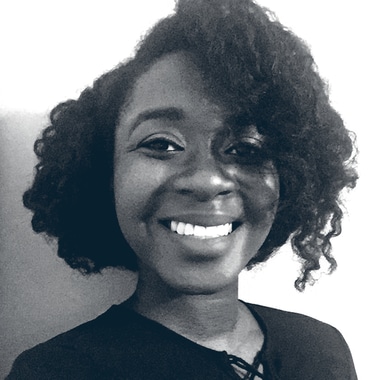Sandrene knows the importance and power of giving. After witnessing her benevolent parents and others like them experience health disparities due to the lack of health education and resources, she knew she had to do something. See how her time in the classroom enhanced her love for medicine, leadership, and a lifelong dedication to teaching and serving marginalized communities.
Q&A
When you think about your current career, what experiences before you joined Teach For America informed where you are today?
I was raised by two incredibly hardworking Jamaican immigrants who placed a strong emphasis on education, as pathway to endless opportunities and as the best tool to help those around me. Much of my childhood I watched my parents navigate the healthcare system without the guarantee of insurance, and therefore without adequate treatment. This inspired me to use my education to pursue a career in medicine.
Despite my deep passion for medicine throughout college, something was missing in my pre-medicine courses. I often reflected on how difficult it was to convey information from leading experts to the people I loved most, my family. I started to consider how training in education could complement my goals in healthcare.
What were some of the major lessons you learned during the corps?
I have learned that education can be a great unifier. Often common ground is the missing element in an argument. The way that an individual sees the world is based on their education, both formal and informal. My time in the corps has allowed me to think deeply about another person’s perspective and really consider what basic principles they are using to guide their decisions. It has opened my mind to opportunities for me to learn from others and moments when I can teach someone more about my viewpoint.
Some alumni say that the corps was a catalyst for personal transformation, and that it changed both their beliefs as well as their skillset. Do you agree with that statement?
I do agree with that statement. For me, joining TFA naturally aligned with my existing core values and beliefs. My time in the corps reinforced my dedication to serving traditionally marginalized communities and gave me tools to act as a leader outside of the classroom. Many of the same skills that I used during TFA, are now part of my everyday interactions. This includes active listening, checking for understanding, and responding to feedback.
What have you been up to since the end of your corps commitment?
Since leaving the classroom, I completed medical school at Stanford. I was been involved in education throughout my time there, including working formally as a teaching assistant and mentoring students to strengthen the pipeline of physicians of color. I was also a leader in diversity and inclusion as Chapter President of Stanford’s Student National Medical Association and worked in community clinics to improve care for women in underserved areas.
How – if at all – do you use the skills and beliefs you developed while in the corps?
When speaking to patients, I know how to scaffold information, such that it is being delivered in digestible pieces. When working with my colleagues, I know how to differentiate tasks to play to each individual’s strengths. Most of all, I have learned to be flexible. Just like with teaching, you often begin your day with a plan, only to have the patient express an entirely different need. Teaching has taught me to adapt to the needs of the people I have taken an oath to serve.
